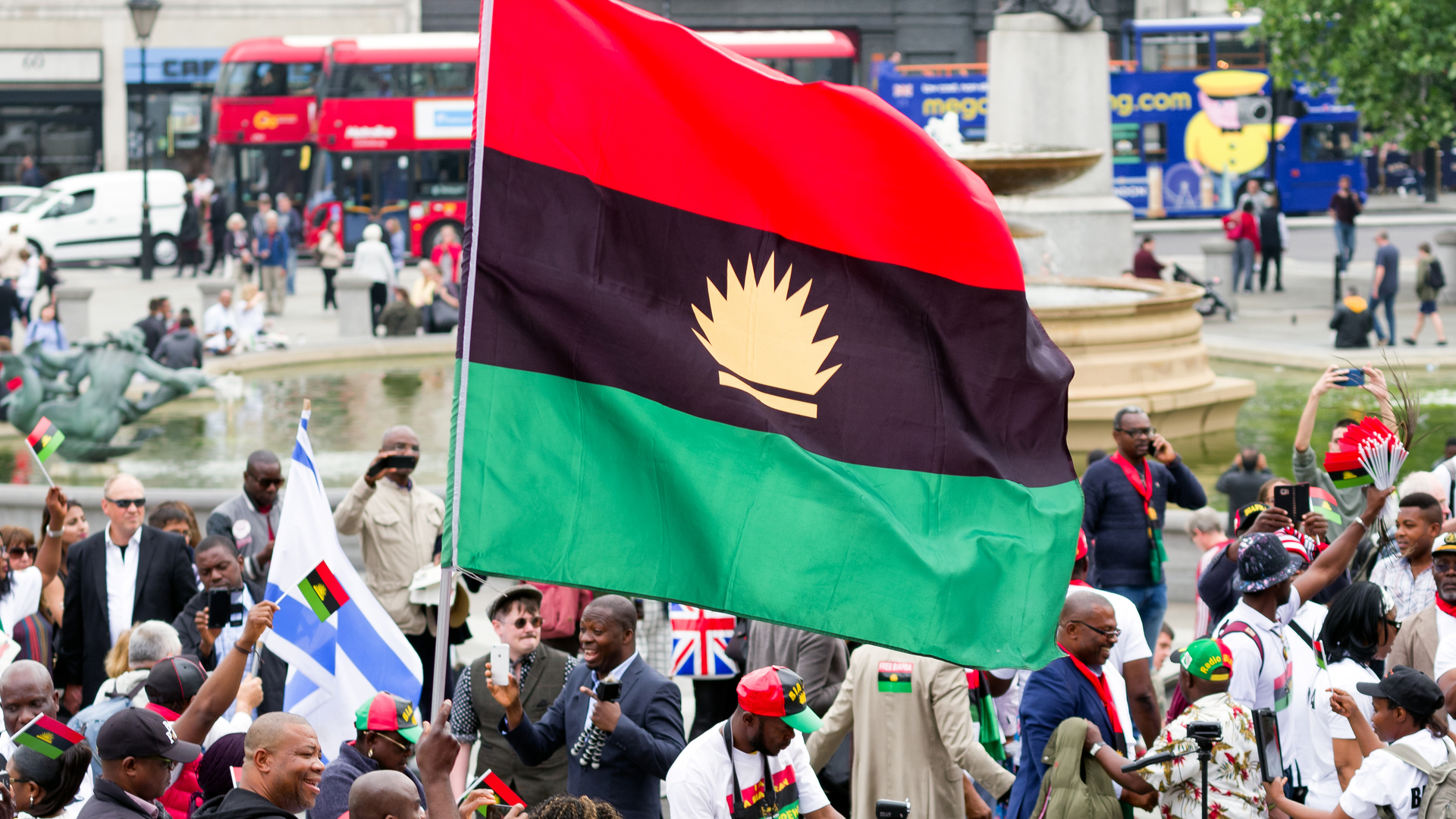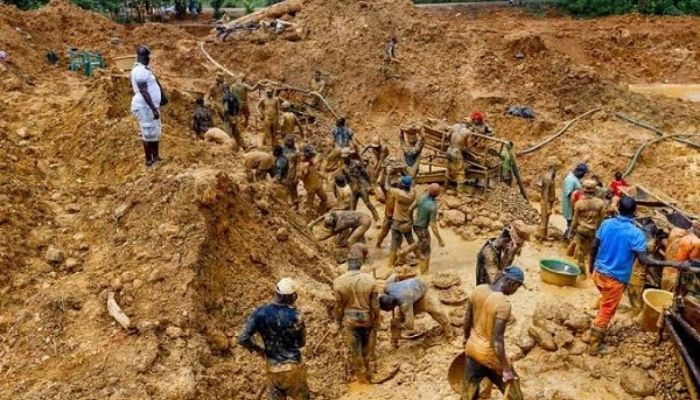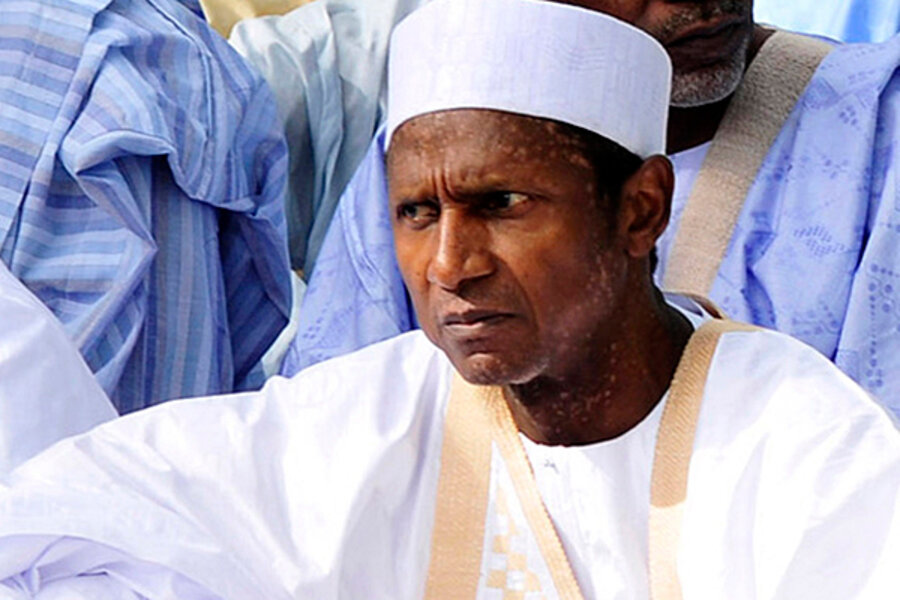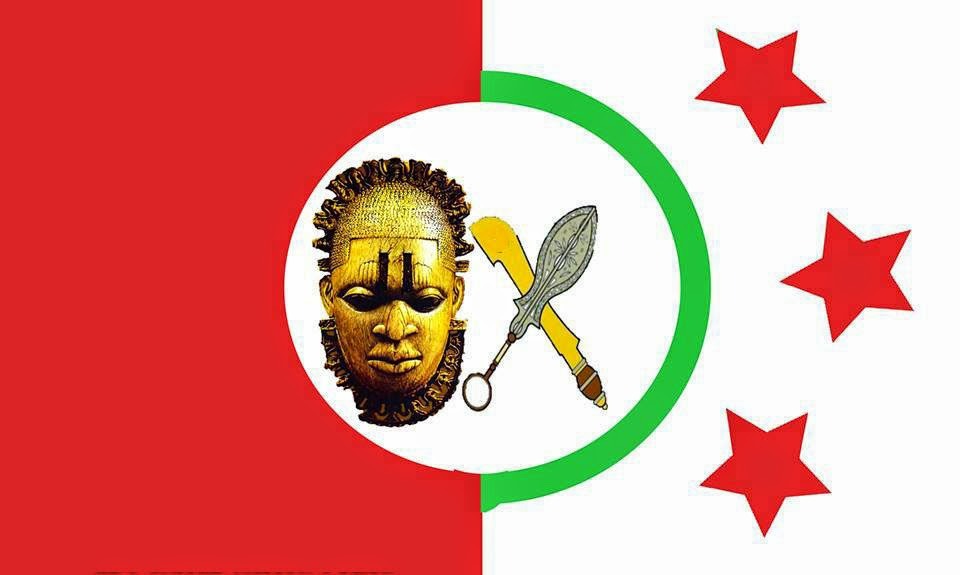culled from VANGUARD, Friday August 13, 2004
The journey to 2007 is about three years away, however, the political scene has continued to witness incremental momentum nationwide, as there are subtle moves for top political positions. There are speculations and assumptions already on who the likely contenders are going to be and then in some cases, predictions on who the winners might eventually be. The battle line seems to have been drawn, most especially in the North (Northern Nigeria) where the steam is said to be heating up with candidates, mostly ex-military generals, who have declared their intentions to contest election in 2007, squaring against one another — albeit, surreptitiously.
The Peoples Democratic Party (PDP) which portrays itself as the biggest and largest party on the African continent, will most probably have some trouble determining which of the geo-political zones gets the presidency. A worst-case scenario is the possibility of the endangering of the polity, now that there are agitators from the North and the South-East as to who is entitled to the presidency.
The contenders who have so far shown interest in the 2007 presidential election and those who analysts still see as forces to reckon with are all from the North and they include Gen. Mohammadu Buhari (rtd), Gen. Ibrahim Babangida (rtd), Brig.-Gen. Buba Marwa (rtd), the incumbent Vice President, Atiku Abubakar and a not-too-new entrant to the race, Chief Rochas Okorocha.
2007 zoning and the battles ahead
Many Nigerians believe that the military while in power did a lot of damage to Nigeria. Most often, when President Olusegun Obasanjo is criticised, the cynical consolation is usually: ‘what else do you expect from a military man?’ Many even contend that Nigeria can still not claim to be a democracy for as long as retired Generals are still clinging unto power, just as it is yet to be seen that the real values and virtues of democracy have taken root. This will certainly become an issue when the campaigns begin. When the PDP eventually decides to zone the presidency to the north, who will the North likely support?
With Buhari and others still in the running and the north having other choices to pick from, can the likes of Marwa and IBB make an in-road in a zone where a Buhari is largely seen as a talakawa sympathiser and emancipator?
The question becomes more relevant considering northern angst against Obasanjo‘s government. Will the far North vote for a person they may perceive as having Obasanjo‘s blessing or one that would be seen as an Obasanjo crony?
Meanwhile, the southeast geo-political zone is also in the forefront of canvassing that it is time for its people to enjoy the presidency since the north and the southwest have enjoyed the privilege since independence. The east pushes the argument further by reminding those who may have forgotten that the Nigerian nation at independence was built on the tripodal platform of north, east and west, the three being the geo-political representation of the regions than in existence.
Agitators, the odds and their chances Atiku Abubakar
Speculations still persist that President Obasanjo and his deputy, Vice President Atiku Abubakar, are not in good terms. Although, both have denied this rumour time and again, it is still difficult for political observers to accept that all is well between the duo. Obasanjo‘s every move seem to counter, as speculated by many, every Atiku‘s 2007 aspiration. The sacking of two loyal aides of the vice-president by Mr. President creates a fertile ground for insinuation. Also, on several occasions, the President has frowned at early campaigners for 2007, stressing it might truncate the nation‘s ‘developing democracy’.
Already, there is a large return of ex-military generals to party politics (and still emerging), especially for the number one job, the only ‘true civilian’ politician of note in the fray of the current shadow contest is Vice-President Abubakar. In the sense that Abubakar represents the resurgence of civil society, he deserves to be closely examined as a factor in the thorough de-militarisation of the country`s political process. He may not represent anything in terms of categorical ideological positions, but he appears to have been consistent in a civil political order as he has been a permanent feature in party formation, organisation and critical electoral combat, which dates back to even the Ibrahim Babangida transition.
He may not be an agitator or even a crusader of the reformist hue like Gani Fawehinmi, the late Aminu Kano, or a Sardauna of Sokoto, Sir Ahmadu Bello. However, nobody can call the vice president a political on-looker in the struggle to establish a civilian political order, nor would he be labeled a stranger to the crucible of the re-civilianisation of the nation’s military-dominated politics. He is also seen as a loyal follower of the late Shehu Yar‘ Adua as he continues to sustain his political legacy of building bridges across the nation’s political divide.
Apart from the man‘s famed deep pockets now firing the unholy zeal of his unprincipled advertisers, what indeed, people want to know is what is the man Abubakar all about? What makes him attractive as a choice leader? What had he achieved in life before becoming the near-richest man in Nigeria’s South-East geo-political zone of which his Adamawa State is a component part.
Abubakar indeed has many friends in virtually every nook and cranny of Nigeria, but is anyone trying to look at the character and reputation of those friends who certainly will become powers behind an Atiku throne?
Recently, during a function on his visit to Kano state, Abubakar bore his mind on 2007 saying that it is not yet time to start talking about his ambition to contest the presidential election come 2007. He also pointed out that he is now too preoccupied with issues of governance and not the 2007 presidential contest. Said he: “My Presidential ambition is not yet time. We are now busy in governance, when the time comes, we would let you know”.
Whether it is time or not, Nigerians know that he would be seeking election into the office of the president in 2007. Nigerians also know that his boss, Obasanjo, would have to provide the needed clearance for him to seek that office. Nigerians, too, are much aware that as vice president, Abubakar operated under the shadows of an Obasanjo per governance; but in terms of politics, he ran his own outfit which, at some point, even if under duress, had to support a second term bid of the latter.
IBB
It is obvious to all and sundry that General Ibrahim Badamasi Babangida who some analysts refer to as Maradona or Evil Genius covets the exalted seat of the president of Nigeria. He is a man under constant pressure from people who believe he understands the nation better than the leaders before and after him. He may need the return to rebuild his image and at the same time, show he is literally not the “evil genius” that many believe he is.
But the problem remains: how do you go about it?
He may not be too comfortable with having to challenge a veepee who has been in office for eight years and one with the demonstrable ability to develop a solid financial capacity as well as an extensive network that will make him almost unmatchable, untouchable and unstoppable in 2007. But IBB is, however, too conscious of how easy it could be for the position to elude him, that is if the situation is not well-managed. That may explain why he is taking his time, playing his game without being in a hurry. And which is also why it would appear he is acting out a script with scenes he can change at will when the occasion demands. He has many cards to play with, but the question still remains: Does he have any chance?
For a man who has declared that “with problems confronting the nation, he and other ex-leaders could not afford to remain in retirement,” since the nation was faced with a huge challenge because so much work was left undone, it was doubtful whether any among them could afford to be in retirement. Said he : “For as long as our people are held hostage by controllable socio-economic forces, we cannot afford to be indifferent to the ravages of poverty in all its dimensions and ramifications”.
IBB is seen to have taken the first step by registering with the PDP.
He is one of those (if not the majordomo) who provided the needed support for Obasanjo in 1998/1999 and his emergence as president during the 1999 elections. Obasanjo‘s refusal to probe IBB‘s military government is seen as an appreciative gesture to the former military president, but the Oputa Panel probe into Dele Giwa‘s murder, however, embarrassed him (IBB).
The only major odd which seems to be against IBB is the annulment of the freest and fairest election ever conducted in the history of the country on June 12 1993. However, in spite of that odd, Babangida was able to cause a meeting point for both the conservatives and the progressives in his dealings within the Nigerian polity (and he still sustains it). For onlookers, this has been a very strong point for him and which explains why even 11 years after stepping aside, his army of loyalists remain.
Buba Marwa
In 2001, former military administrator of Lagos State, Brig. Gen. Mohammed Buba Marwa (rtd) in Jos declared that he has ruled out politics for now as joining partisan politics was not part of his immediate plans. The retired officer, now chairman of Albarka Airlines explained that his pre-occupation was how to remain successful in his airline business. Said he “ I am in business now and what is in front of me is more than politics. I am not in politics”. But in 2003, Marwa gave an indication that he may be interested in running for president come 2007 stating that “if God had destined him to be president of this country”, he would have no cause to run away from the responsibility noting that since he had once governed the very complex and highly populated Lagos State ‘without any problem’, he would surely do same if Allah destined him to rule the country.
There seems to be more battles ahead for Marwa than he knows it. One is the continued belief by many Nigerians that the military has done more harm than good to the country and therefore, there needs to be a shift in power from retired military generals to civilians.
Aside, will he be able to take the ticket of the PDP? In any case, which party does he belong to? He is from the same state with vice president Abubakar who is firmly believed to be in charge of the political machinery in his state as well as the geo-political zone, what chances are therefore there for him?
It was even recently said that the northeast PDP leaders endorsed Abubakar as their presidential candidate for 2007; however, since Obasanjo is still in control, he may have a say on who picks the ticket.
With his wealth, Marwa stunned watchers of political developments when sometime last year, there appeared to be a lull in his political activities. When he returned to fully take charge of his air operations, it was insinuated that he was becoming fed up with politics and, therefore, wanted a break. He has been networking, with chieftaincy titles and honorary degrees flowing in, Marwa is performing the rites to political participation in a country where the crave for titles is legendary.
Buhari
A one time presidential candidate under the All Nigeria Peoples Party (ANPP), Buhari is still contesting the 2003 presidential elections at the election tribunal which he declared he won. Although he has not done anything yet to indicate that he would be seeking that office again in 2007, he has equally not done anything to suggest that he would not be seeking the office again. For a man who has tremendous following in the north, a sort of peoples man who may not fit into the mould of an Aminu Kano and, even in spite of his military background he is still seen as a champion of the masses. During his era as military head of state, Buhari ruled the nation with detached zealousness and one which presented him as a leader who would broach no opposition, as well as one determined to do what he thinks is right for his country. Regarded as a strong disciplinarian, Buhari was able to demonstrate to Nigerians that where laws are made, they are meant to be obeyed. Does he fit into the character of an average Nigerian politician? Many would not be willing to give an affirmative answer to that poser because some of his comments and ways do not in any way suggest that he is a member of Nigeria’s political class in that true sense of the word.
Rochas Okorocha
He cannot be described as the first time presidential aspirant but it would not be good for him to become known as a perennial contestant for the office of the president. One thing, though, in 2003, he was already coasting home to clinch the ticket of the All Nigeria Peoples Party, ANPP, presidential ticket before a compromise candidate in the person of Buhari was given the ticket. He is Igbo and that gives him an opportunity of sorts, for by 2015, some 11 years from now, and in the event that the southeast would produce the next president, Okorocha is expected to have matured into the type of presidential hopeful which some people are already touting him to be. Presently, he works with President Obasanjo as an adviser.












